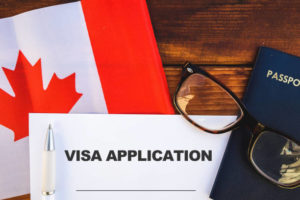People have been changing countries since time immemorial. Families uproot themselves to find better career prospects, but it is only recently that the due credit for this social and emotional turmoil in the child’s lives, has been given weightage. A commonly held belief is, if one happens to be on the socially interactive side or belongs to a family of Travellers, the adjustment crisis wouldn’t be as big, but that’s still true on paper. Truth is, sometimes both socially interactive and reserved children find it difficult to adapt. Hence, a 101 priority for the parent is to prepare their child for the foreign move.
Tips to Move Your Child Abroad:
Visas For Children
Visas for children or minors visas have several different clauses depending on the country. However, one thing that is applicable in all countries is the age limit according to which the dependent visa is granted to the child. While some countries impose more restrictions than the rest, expat families eyeing UAE as their base have better perks than other globally acclaimed destinations.
As per American Laws, anyone under 21 is allowed to obtain financial assistance under a dependent visa, while in UAE there are far greater provisions for financial ease. For instance, unlike American Law, the UAE allows individuals under 25 to obtain financial support and in the case of unmarried daughters, there is no age bar.
Both Canada and the United Kingdom also enforce similar laws over the dependent visa, with the Canadian government offering some relaxation to physically or intellectually challenged citizens over 22.
Involve The Children
The decision to immigrate to a new landscape brings along its share of challenges. What sometimes adults or parents consider the best, isn’t similarly comprehended by the child(ren). Not only do adults overlook the significance of talking it through with the kids, but also neglect the child’s emotional and social difficulties while dealing with change. All of this can negatively impact the child’s adjustment and adaptation abilities. Hence, involving them in the whole process of the big move and keeping them in loop, can put the family at better odds with the topographical and cultural transition.
Of course, babies won’t have much to say or at least a lot of difficulties while adjusting! However, your pre-pubescent or adolescent might need a bit of consideration when planning about the relocation. Not only do they need full disclosure, but a green flag is also needed on their part. Talking to them openly about opportunities that a new land can bring, will help with their mental and emotional preparation to embrace the change.
Explore Socialisation Opportunities for Your Child
A baby wouldn’t be having a social circle; however, it will surely be needing one sometime soon. Play opportunities for a toddler, with toddlers of similar age, are very important for them to reach their social communication milestones. Creches, playschools or simply choosing a locality that is kid-friendly can be the first step to easing into the place you’re moving into, especially when you have kids.
Challenges with older kids are a bit more complex as leaving behind a life and starting over in a new country isn’t what every child will fancy. For some, it might also bring a certain amount of grief and anxiety. Whether it’s breaking up old friendships or fear of not fitting in the new place, an adolescent, specifically, goes through a critical phase. Hence, when there is added pressure to adapt, the child can simply go into a retreat or retaliate mode. In either case, the task of the parent here becomes to at least look for a community where the child can find comfort. Of course, they’ll make friends on their own, however, looking out for them in ways that help them connect better can make the transition process so much less tedious. Facebook groups, religious groups or communities all can offer so much support after the relocation and the settling-in period.
Research On Educational Prospects of Your Child
A top-notch priority for a parent is the education of their child. No doubt, countries like the United Kingdom, America and Canada offer the best schooling and grooming to young ones. However, finding the right place for your kid, means matching their interest and aptitude with the opportunities offered at these places. Enrolling them in skill enhancement or any vocational courses they enjoy or prefer, can be of added value while helping them shape up in a new culture.
Expats can also choose International Schools for their children so that the academic curriculum isn’t completely different from what the child studied in their home country. The only area of concern here is the financial cost. Nevertheless, local schools are just as good and offer greater opportunities for kids to blend in. Apart from just scholarly knowledge, your child can pick up the customs, language and norms faster while studying in a local school.
Work As A Team
Uprooting from your land and finding a new base is in itself a consuming proposition and an even greater task. Often in cases of transitions, parent-child or spouse disagreements are common. However, the mantra to ace expatriation or immigration is by working like a team. Supporting each other through the confusing and overwhelming phase can make it convenient for both parent and child to have lesser difficulties. Understanding that a child is not an adult is very important. Their mood can go from happy to upset in seconds, hence, only empathy and acceptance can help with the little ones. A slight perspective can be offered to slightly older adolescents so that they understand parental concerns and expectations. In a nutshell, communication and coordination with each other can make expat families have a beautiful transition.
Bonus Tip: Prepare for the Unexpected
No matter which country one decides to move to, challenges are going to be present and at the most different with different countries. One of these is simply about physical adaptation to the weather, climate, and even diseases. Little ones are more susceptible to certain viruses and diseases. Make sure your children are up to date on vaccinations for their age and also where they are moving to. Your MD or a good travel medical clinic can assist you with this. You should also make sure your children and up-to-date on their vaccinations.
As common and un-concerning it might seem, things can definitely go south in a foreign land, if one doesn’t have access or information about medical facilities. Hence, getting global medical coverage is vital for expatriates with children who are still trying to figure out the country they moved into.
Moving countries is of course a tough job, but if you have your family to help you do some digging, fun is just around the corner!




